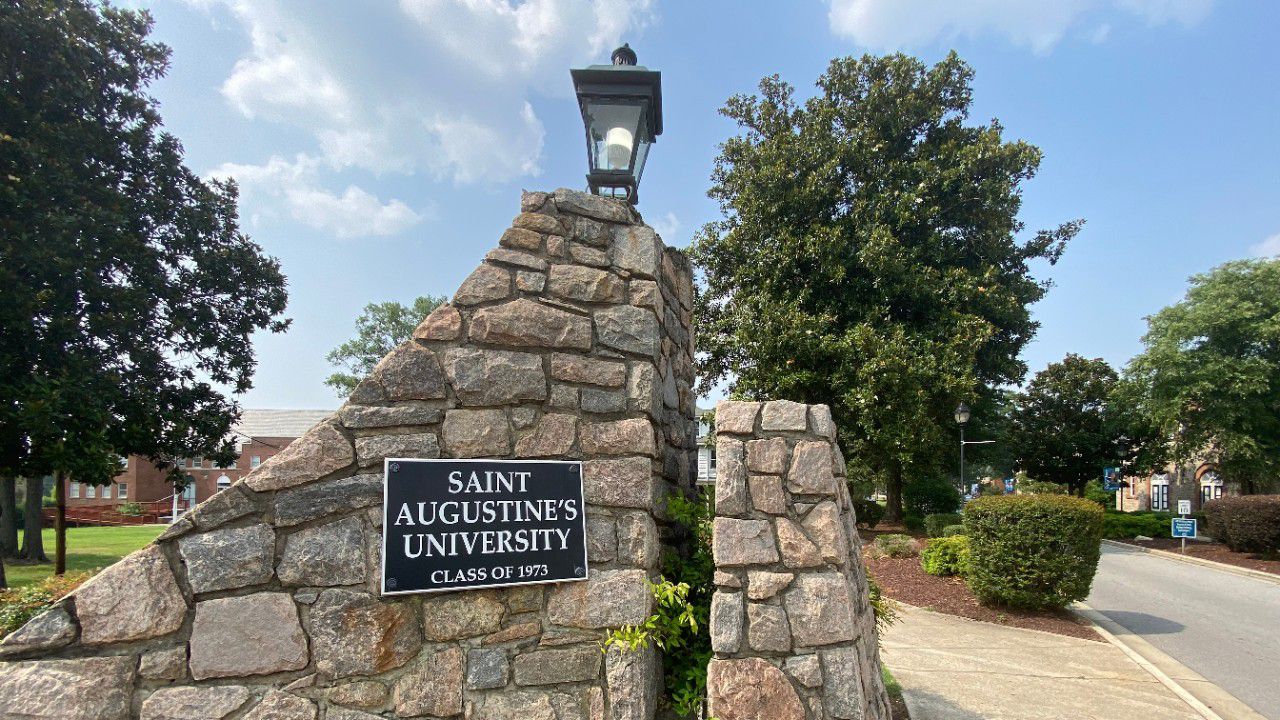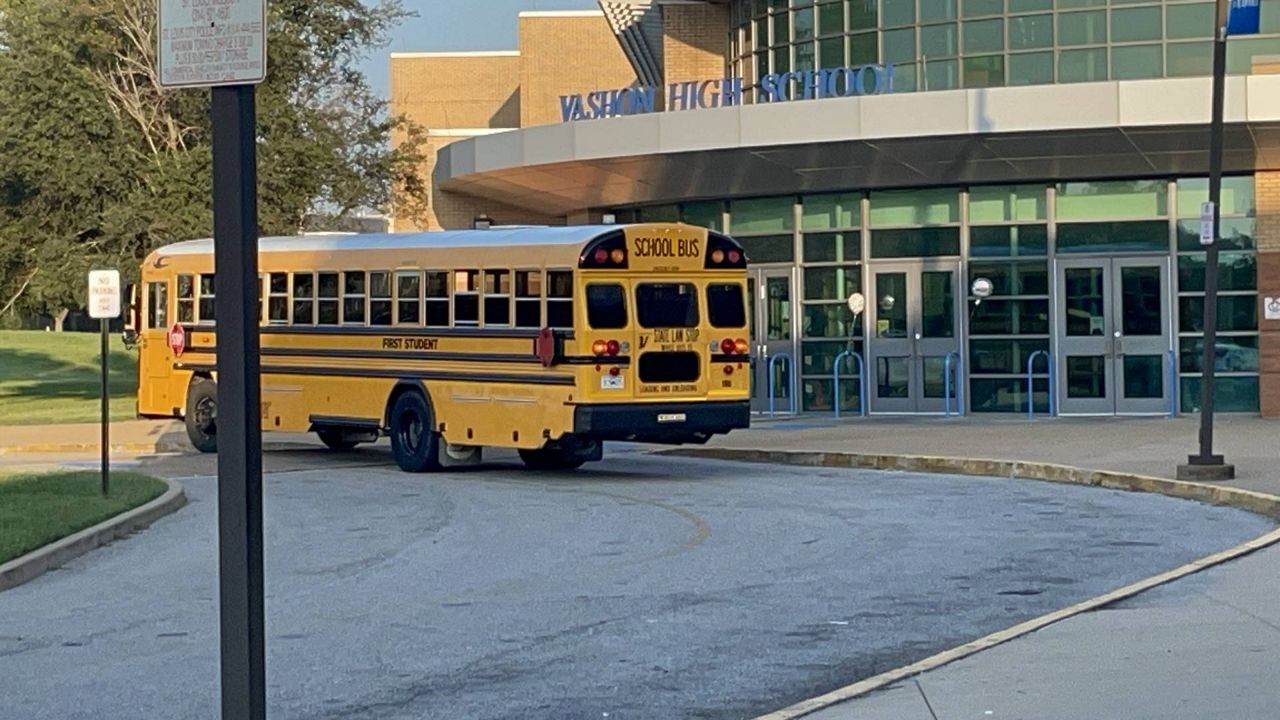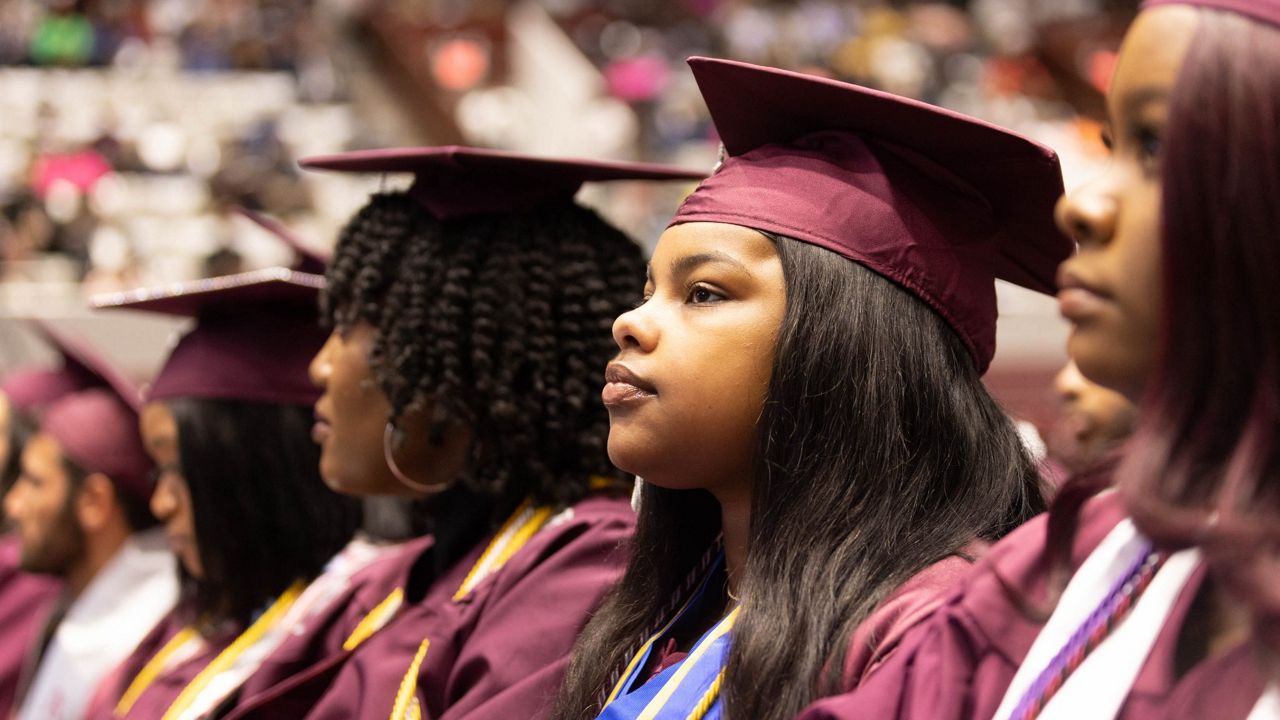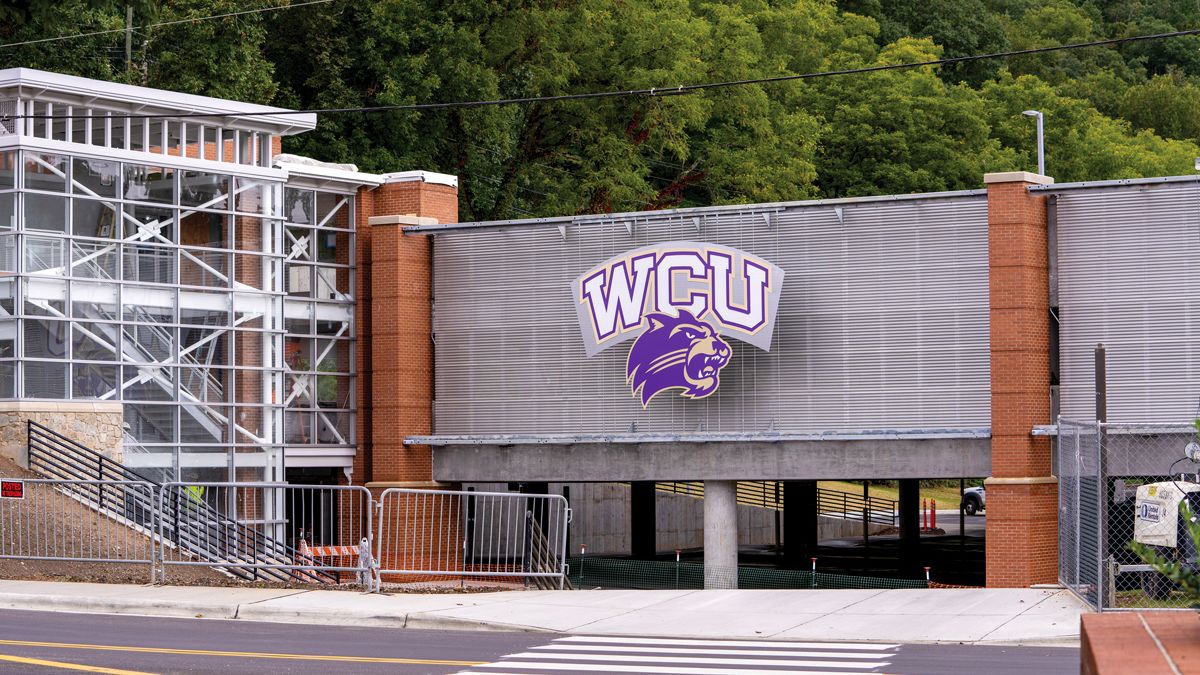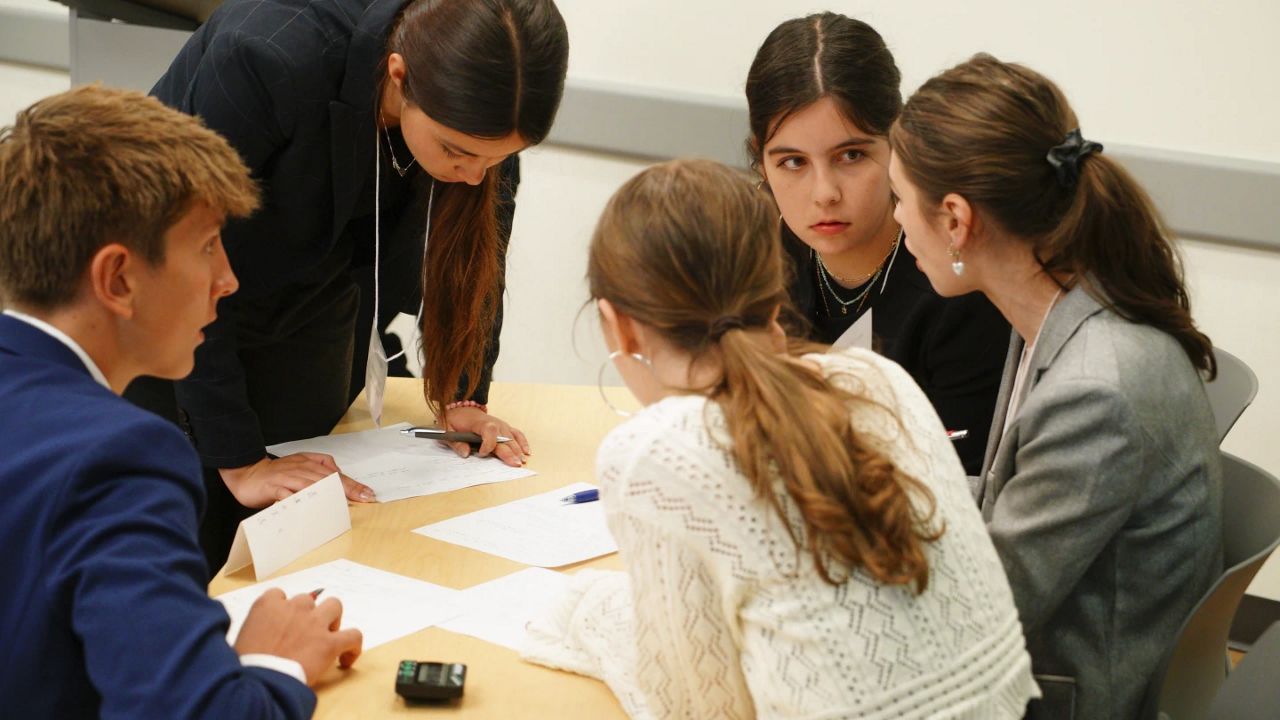Starting April 1, St. Augustine’s University in Raleigh will move classes online and most students will stay home after the Easter break. The move comes as the historically Black university continues to deal with the fallout from accusations of years of financial mismanagement.
St. Augustine's is a 157-year-old private Episcopal university and the smaller of Raleigh’s two HBCUs. The university has about 750 students on its 100-acre campus just outside downtown Raleigh.
The university’s interim president, Marcus Burgess, announced that the school would go to remote learning in an email to students and staff Wednesday.
“While we strive to maintain the quality of education, it is also our utmost responsibility to ensure the safety, well-being, and dignity of the SAU community, especially our students,” he wrote.
Burgess said the school held meetings with students, faculty and staff before making the decision.
Some students will be allowed to stay on campus, he said, “including student-athletes on the track team, international students, and students working internships will remain on campus until our commencement ceremony on May 4th.”
The Southern Association of Colleges and Schools Commission on Colleges voted to end St. Augustine’s accreditation late last year. The university had been on probation with the association for two years.
The school has since lost an appeal to that decision, but the school remains on probation with the accreditation organization. On March 8, the university said it sent a letter to take the matter to arbitration with the association. That arbitration will happen within 90 days, St. Augustine’s said.
The association, which accredits colleges and universities in the South, said the university violated the rules for financial responsibility and governance.
In response, St. Augustine's said it planned to work with the association to fix the problems with its finances and on its governing board.
“During the last two years, SAU has taken unprecedented action to protect and advance the fiscal health of Saint Augustine’s University,” the school said in a statement.
“These efforts are reflected in the significant progress in areas such as increased enrollment, increased alumni and employee giving, increased grant activity, increased endowments, reduced student debt, improved upward mobility of graduates, and year-end balanced budgets,” according to the university.
If the university loses accreditation, it isn’t the end of the road. St. Augustine’s could try to switch accrediting organizations. Bennett College, an HBCU in Greensboro, lost its accreditation with the same association because of financial problems in 2018.
Bennett received new accreditation with the Transnational Association of Christian Colleges and Schools in 2020.
The IRS last month filed a $7.9 million tax lien against the university. The school has also had problems paying vendors, court records show. The financial problems got so bad earlier this year that the university wasn’t able to pay faculty and staff.
The school plans to sell some of its valuable real estate near downtown Raleigh, Burgess said in an interview this month with Spectrum News 1.
The university is trying to raise more funds from alumni and the community to get through the immediate financial crisis.
An audit cited poor financial leadership by the school’s governing board as part of the root causes of the problems facing the university.
“Leadership decisions ultimately put us in some of the position that we are in now. And so we are trying to make sure that we believe we place sound financial structures in place. We are working with a group, the Terminus Municipal Group, to help us right size some of our debt, more importantly, create some best practices on the fiscal side of the house,” said Burgess.
A new group of alumni and university organizations recently formed SAVESAU to try to fix the problems with the university. In a statement this week, they placed blame for the financial problems on the university’s board of trustees.
“We believe and evidence shows the SAU Board of Trustees has breached its fiduciary duty to the University. The FY21 audit also states that the Board’s overall governance and oversight of the University were severely absent,” said John Larkins, 1966 alum and former board trustee.
“Over 60% of the twenty-seven material weaknesses and other findings in FY21 are repeat audit findings. Alumni have expressed major concerns about the board’s governance of SAU for the past five years,” he said in a news release.
The group called on all members of the board to resign.
“We love our university and are making a concerted effort to ensure that the right changes are made by individuals we trust to oversee the institution during this dark period,” said Devaron Benjamin, who graduated from St. Augustine’s in 1996.
“We will continue to support students, faculty, and staff. Those who created the issues, whether through intent or neglect, cannot be trusted to fix the problems. Our hope is that the board of trustees will care enough about this incredible institution to step down given their past and current performance. They need to give future generations a chance to love it like we do,” Benjamin said in the news release.
But board members have rejected calls for their resignation in interviews with other news outlets.
SAVESAU is circulating a petition calling for the board to resign.
Most students will not return to campus after spring break and will finish up the semester from home. But it’s still not clear whether the university will be accredited when it’s time to come back in the fall.
Many students may be thinking about transferring to other colleges and universities to finish their degrees.
Wendy Briley, who runs a college consulting business, said students should follow several steps to make sure they can transfer successfully.
“The student should first make sure they contact St. Augustine Registrar’s office and request a copy of their transcript,” she said.
Briley says students should reach out to the school they aim to transfer to and find out:
- The minimum and maximum hours a transfer student can have
- Which classes the new school will accept; ask an admissions officer to review their transcript
- Whether financial aid will be available; contact the financial aid office
- whether they will be able to live on campus; contact student housing
Universities often will develop a plan to help students.
“Schools that lose their accreditation typically have a teach-out plan to protect credits that students have already earned. This is an agreement with another institution that allows students to transfer all their credits. It also allows them to start at the new program where they left off at the previous school,” Briley said.
If the school does lose accreditation, students should contact St. Augustine’s to ask which schools are offering teach-out plans, she said.





